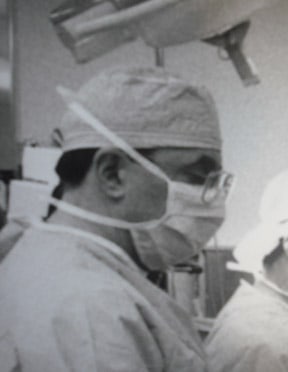An emergency medicine resident blogging on KevinMD, thinks so. Here’s why.
He started with the competition for grades in college and the process of applying to medical schools—lamenting the time, effort, and cost of both.
Getting into medical school is only the beginning. It turns out that the first 2 years of medical school require lots of time and effort too (despite “sickness, holiday or special occasion”), and of course, the tuition expense.
The clinical years were even worse. On top of mounting debt, the author was subjected to criticism, cruelty, and long hours. He conceded that “Some students, my colleagues, included, went to different hospitals and loved going to and leaving work each day, growing more competent and confident with each shift, and consequently making my experience infinitely more painful to endure.”
For some reason, the author decided to do his 4-year emergency medicine residency training at the same malevolent hospital he rotated through as a medical student.
His first year was spent on various general medical rotations where he says adherence to the work hours rules was spotty at best.
According to the author, the good news is “The emergency department is the least malignant environment, by a substantial degree.”
Although least malignant, the ED consisted of hectic 12 hour shifts, switching from days to nights, and an ICU rotation with greater than 24 hour shifts without sleep.
Depression ensued. He said, “The patient load, increasing resident responsibility, extended work hours, and lack of personal time provide a net unhealthy environment for a resident.”
He is “thoroughly exhausted” and has considered quitting but “Lack of marketable skills and hundreds of thousands of debt as a consequence of a lifetime pursuit of a career in medicine acts as a shackle, restraining you to the chosen path.”
“The further I get into training, the more tired I become and the less eager I am to spend the very limited time off devoted to studying. I feel compelled to read, research, and to strengthen my foundation of clinical knowledge to implement into my practice for the betterment of my patients, yet at the expense of less time spent doing what I love—sports, outdoor adventures, traveling, cooking—with my loved ones. The more I realize this constraint on my personal life the more bitter I become with the decision I have made to become a physician.”
He concluded by wondering if the problem was more about his choice of hospital or emergency medicine as a specialty, or was he simply not cut out for “the rigors of a medical residency.”
Since he used his real name, his essay will likely be read by the administration of his hospital and the emergency medicine faculty. I am concerned that he has burned some bridges at his hospital and residency program by exposing their flaws (at least as perceived by him) to the general public.
The author sounds desperate. I hope he has sought professional help.
This is a sad situation. He is facing 2 more years of training. How would you counsel him?
Skeptical Scalpel is a retired surgeon and was a surgical department chairman and residency program director for many years. He is board-certified in general surgery and a surgical sub-specialty and has re-certified in both several times. For the last six years, he has been blogging at SkepticalScalpel.blogspot.com and tweeting as @SkepticScalpel. His blog has had more than 2,500,000 page views, and he has over 15,500 followers on Twitter.



 SkepticalScalpel
SkepticalScalpel